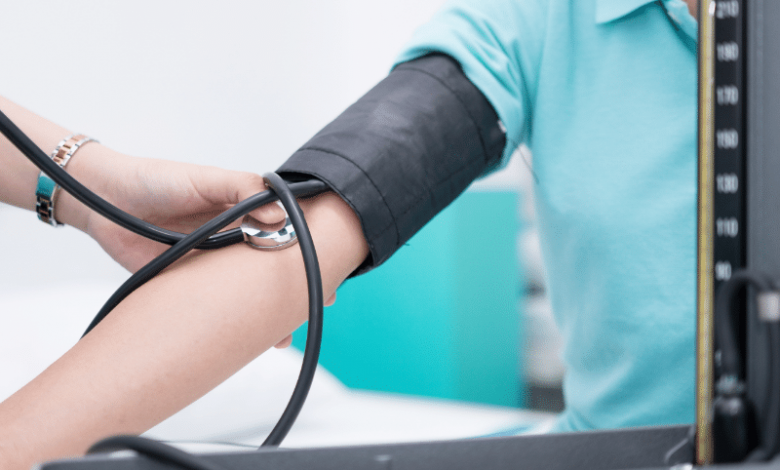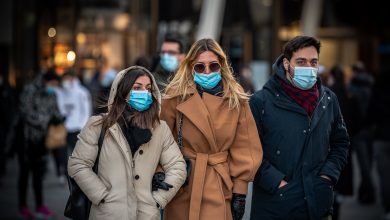Students on the Front Line: Nursing Students in the Pandemic
I’ve spoken to two student nurses, Charlotte and Lottie, about their experiences working in hospitals during the COVID-19 pandemic.

Table of Contents
What is it like working in a hospital right now?
Qualifying to be a nurse is always going to be a stressful time. But continuing your training amidst a global pandemic will certainly take the pressure up a notch or two.
The situation has been confusing, to say the least, for all of us. Yet, for those directly involved in medical care, the confusion has been a lot more than wondering if you can visit your Gran. Or if you have to wear a facemask for your weekly trip to Sainsburys.
‘At the start of the pandemic, we had our placements canceled. A month later, we were placed in hospitals,’ Lottie explains, ‘it was confusing for everyone as to what our role was’.
Charlotte also touched upon the confusion she dealt with at the beginning of the crisis. ‘We had so many questions,’ she explained, ‘what’s going to happen? Do we opt-in? Do we opt out? Will we qualify in time? What will be expected of us? Will we be supervised? Will we learn the same?’
The key question I’d assume goes through every medical professional’s head surely is ‘am I safe?’ In light of this assumption, I asked Lottie and Charlotte if they have ever cared for COVID positive patients.
‘I’ve had little exposure (so far) to Covid-19’ Charlotte answers, ‘and the only real adjustment I’ve had to make is getting used to using PPE and wearing a mask for 13 hours a day’.
While Lottie has encountered patients with the virus, she mentions she is lucky to have had no extreme experiences. She states that ‘I have cared for roughly 5 confirmed COVID patients but they only had mild symptoms’
How different is life in the hospital and in your own life?
Lottie feels that the pandemic has certainly taken a toll on her wellbeing, explaining that ‘the main impact from the pandemic is having more emotionally and physically draining shifts but the main difference is being able to go home to sit with your family and vent’.
Without being able to socialise with family and friends in her off-hours, Lottie’s entire life revolves around her patients. That burden is heavy enough without a lack of downtime.
As a student midwife, Charlotte notes that the main difference she has noticed ‘is the no visiting rule’.
She continues, ‘maternity usually is full of visitors; partners bonding with their newborn child, siblings meeting their brother/sister for the first time, new grandparents cradling their own child’s child. But, at the moment it’s just those who have given birth and the babies who have been birthed on the unit’.
‘This must be so hard for people, particularly for partners who can’t come in and spend time with their significant others and newborn during those precious first days’.
How do you feel about the government response to the pandemic?
It seemed necessary to ask Lottie and Charlotte their opinions on the government response to COVID.
‘I feel that the government could have worked faster or more effectively,’ Lottie admits.
Charlotte acknowledges the extent of how difficult the government decisions were, saying ‘it’s important to remember these have been completely unprecedented circumstances. Decisions were made as and when they had to be and it’s easy to say in hindsight what was right or wrong. Put it this way – I wouldn’t like to be the one making the decisions’.
Charlotte claims that despite this, ‘the attitude that’s been portrayed towards student nurses/midwives, however, at times has been questionable’.
As an example, she referenced Helen Whately’s controversial claim that student nurses ‘are supernumerary and are not deemed to be providing a service’.
‘Yes, we’re supernumerary.’ Charlotte confirms, ‘This means that we are supervised, we have qualified staff mentoring us and that means we are not officially counted in staffing numbers’.
‘However,’ she continues, ‘that does not mean that we aren’t providing a service. Have you ever had a student nurse looking after you? A student midwife deliver your baby? A student paramedic take care of you? Or a student physio helping you? That is when you’ll see that we absolutely are providing a service’.
How do you feel about the lack of PPE?
When asked about the shortages of PPE equipment, both Charlotte and Lottie reported that they were fortunate enough to work in hospitals that did not have this issue.
‘PPE is vital in healthcare to protect both patients and staff,’ says Charlotte, ‘where I’m working, PPE has never been an issue because it’s always been well supplied. It genuinely upsets me that that is not the case everywhere’
‘My hospital hasn’t had a lack of PPE,’ Lottie states, ‘but I think the government should have been more effective in preparing for the pandemic.’
It has been reported that more than 30% of doctors experienced shortages of scrubs and long-sleeved disposable gowns, and almost half of doctors in England have relied on donations or sourced their own PPE.
Have student nurses had their contracts ended early?
In late March, Health Education England chief nurse, Mark Radford, offered third-year nursing students the opportunity for a six-month paid placement to help the NHS during the COVID pandemic.
Therefore, many students sacrificed their other employment, assuming they had secure income for the following six months.
However, Radford recently confirmed that many of these placements will be terminated early due to the decline of demand for these student nurses. This will leave many of our student nurses unemployed and in need of income.
In defence of criticism, Radford explained that ‘all student nurses and midwives are required to complete placements during their training,’
He further states that ‘these placements are normally unpaid but to recognise the special circumstances and as part of the response to Covid-19, these hours have been paid and will be until the end of summer’.
‘Doctors have got a pay rise, but what about nurses and other healthcare professionals?’ Lottie asks.
How do student nurses view the NHS?
Upon asking them if the pandemic has altered their opinion of the NHS, both nurses showed an overwhelming appreciation for it.
Lottie says ‘the pandemic has shown me how strong all the NHS staff are, from what they see to what they do.’
‘I’ve always had a lot of respect and praise for the NHS,’ Charlotte replies, ‘and I am so beyond proud to be a part of it. So if my opinion has changed of the NHS, it’s only for the better’.
Finally, I asked them what they thought about NHS staff belong labelled as ‘heroes’ throughout the crisis.
‘Being called heroes is nice in some aspects as it shows some respect which we haven’t received before’ Lottie begins, however, she continues to say that at times ‘it was a bit patronising as our job role hasn’t changed, nothing has changed apart from the PPE.’
Charlotte responds, ‘I think the best thing to say is that not all heroes wear capes, but neither do they all wear scrubs. Any key worker during this pandemic has been a “hero” and I hope they know that’.




